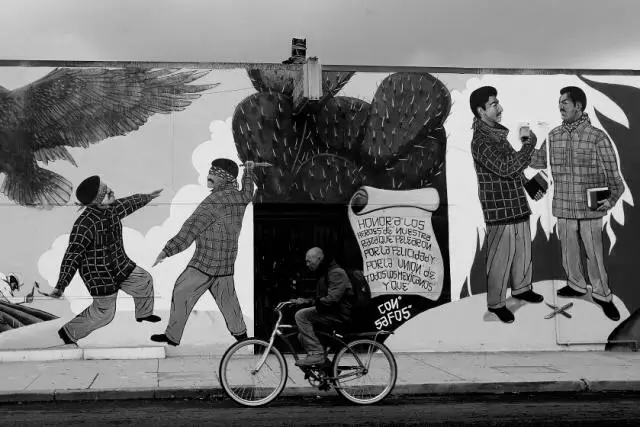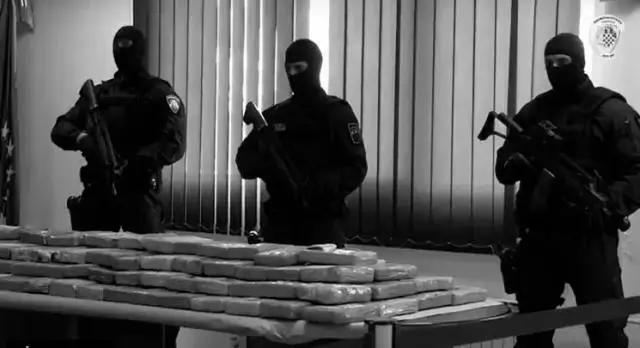Operation Mille: A Coordinated Crackdown on Organized Crime in the South West
In a sweeping effort to dismantle organized crime networks involved in the illegal drug trade, police forces across the South West of England launched Operation Mille, a multi-agency initiative that resulted in the seizure of thousands of cannabis plants, numerous arrests, and the disruption of criminal operations. The operation, which involved officers from Avon and Somerset, Wiltshire, Gloucestershire, Devon and Cornwall, Dorset, and the South West Regional Organised Crime Unit, underscores the growing threat posed by organized crime groups (OCGs) and their exploitation of vulnerable individuals.
A Unified Stand Against Organized Crime
Operation Mille was designed to target the pervasive influence of OCGs in the illegal drug supply chain. Over the course of the operation, nearly 40 arrests were made, and significant quantities of drugs, cash, and weapons were seized. Acting Detective Chief Inspector Matthew Lloyd of Avon and Somerset Police emphasized the importance of regional collaboration in tackling organized crime. "Organized crime knows no bounds or borders," he said. "It requires a robust response from our intelligence and operational teams to make the South West of England as hostile an environment as possible for drug criminals."
The operation’s success highlights the effectiveness of a coordinated approach, with police forces pooling resources and intelligence to disrupt criminal networks that often operate across multiple jurisdictions.
- Major Seizures:
- Thousands of cannabis plants confiscated across multiple locations.
- Over £12,000 in cash, 246 grams of cocaine, and 101 grams of cannabis recovered in Wiltshire alone.
- Weapons and additional cannabis plants discovered during linked raids.

Key Raids and Seizures
One of the most significant raids took place in Shepton Mallet, where officers discovered 1,304 cannabis saplings in an industrial unit. A 28-year-old man was subsequently charged with the production of a Class B drug and remanded in custody. During the raid, police found keys that led them to a flat in Yeovil, where additional cannabis plants, a substantial amount of cash, and a weapon were recovered.
- Significant Raids:
- Shepton Mallet: 1,304 cannabis saplings found in an industrial unit; one 28-year-old man charged and remanded in custody.
- Yeovil: Keys from the Shepton Mallet raid led to a flat where more cannabis plants, cash, and a weapon were seized.
- Wellington: 424 cannabis plants seized from a warehouse; three suspects arrested and later bailed, with two referred to the National Referral Mechanism (NRM) as potential victims of modern slavery.
In Wellington, police uncovered 424 cannabis plants in a warehouse. Three suspects, aged in their 20s, 30s, and 40s, were arrested at the scene after being found hiding in squalid conditions in the attic. All three were later released on bail, with two referred to the National Referral Mechanism (NRM), a framework designed to identify and support potential victims of modern slavery. This referral underscores the often exploitative nature of organized crime, with vulnerable individuals frequently coerced into participating in illegal activities.
Disrupting Criminal Networks in Wiltshire
Wiltshire Police played a pivotal role in Operation Mille, executing six warrants and making eight arrests. The force seized over £12,000 in cash, 246 grams of cocaine, and 101 grams of cannabis from addresses linked to suspected drug dealers and suppliers. Deputy Chief Constable Mark Cooper of Wiltshire Police highlighted the broader impact of these seizures. "These arrests and seizures mean that a significant number of drugs have been removed from our towns and rural areas, as well as the disruption of criminal networks which prey on the vulnerable and bring so much misery to people," he said. DCC Cooper also emphasized the importance of collaboration, describing the operation as a "great opportunity" for Wiltshire Police to work alongside regional partners and other forces. This unified approach not only enhances operational effectiveness but also sends a strong message to criminal networks that their activities will not be tolerated.
The Human Cost of Organized Crime
While the seizures and arrests are a clear victory for law enforcement, Operation Mille also sheds light on the human cost of organized crime. The referral of two suspects to the NRM highlights the exploitation of vulnerable individuals, who are often forced into criminal activity under duress. Modern slavery and human trafficking are increasingly intertwined with drug production and distribution, as criminal networks seek to maximize profits while minimizing risks.
By addressing both the supply chain and the exploitation of vulnerable individuals, Operation Mille represents a holistic approach to tackling organized crime. It not only disrupts criminal operations but also provides support to those who may have been coerced into participating.

A Model for Future Operations
The success of Operation Mille serves as a model for future efforts to combat organized crime. By leveraging regional collaboration, intelligence-sharing, and targeted enforcement, police forces can effectively disrupt criminal networks and reduce the availability of illegal drugs. The operation also highlights the importance of addressing the root causes of organized crime, including the exploitation of vulnerable individuals and the socio-economic factors that drive participation in illegal activities. As Acting DCI Matthew Lloyd noted, the fight against organized crime requires a sustained and coordinated effort. "Organized crime is a complex and evolving threat," he said. "But operations like Mille demonstrate what can be achieved when police forces take a united stand."
Conclusion
Operation Mille represents a significant step forward in the fight against organized crime in the South West of England. Through coordinated raids, targeted arrests, and the seizure of drugs, cash, and weapons, police forces have disrupted criminal networks and made the region a more hostile environment for drug criminals. At the same time, the operation has shed light on the human cost of organized crime, with vulnerable individuals often exploited and coerced into participating in illegal activities.
As law enforcement agencies continue to refine their strategies and collaborate across jurisdictions, operations like Mille will play a crucial role in dismantling organized crime networks and protecting communities from the harms of illegal drug supply. The success of this operation underscores the importance of a unified, intelligence-led approach to tackling one of the most pressing challenges facing society today.